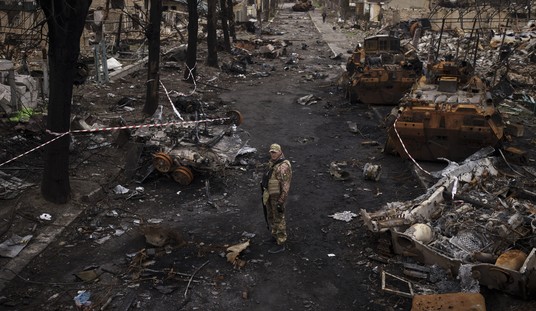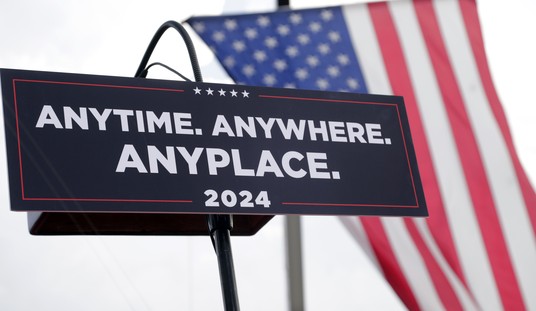“Berman praised the administration’s action, but noted that the current plan is limited to protecting civilians and does not allow international forces to actively overthrow the Libyan government.
“‘There is now an international consensus that Qaddafi must go, but what does not yet exist is an international consensus on how to get Qaddafi to leave power,’ he said.”
***
“Beyond the Security Council’s authorization to try to keep Mr. Qaddafi’s air forces from attacking civilians and rebel fighters, Western diplomats said there was no clear endgame. Many of the leaders in Paris have called for Colonel Qaddafi to quit, and it may be that military intervention leads to negotiations with the opposition for the colonel and his family to go — or, at the least, buys time for the rebels to regroup.
“There are political risks, though. One widely held concern is the possibility of a divided Libya with no clear authority, opening the door for Islamic extremists to begin operating in a country that had formerly been closed to them. And while the cooperative military mission was clear punitive measure against Mr. Qaddafi’s attacks on the Libyan opposition, there have been few penalties so far for allied Arab governments in Bahrain and Yemen that have violently cracked down on their own protest movements.”
***
“According to a cache of al Qaeda documents captured in 2007 by U.S. special operations commandos in Sinjar, Iraq, hundreds of foreign fighters, many of them untrained young Islamic volunteers, poured into Iraq in 2006 and 2007. The documents, called the Sinjar documents, were collected, translated and analyzed at the West Point Counter Terrorism Center. Almost one in five foreign fighters arriving in Iraq came from eastern Libya, from the towns of Surt, Misurata and Darnah.
“On a per capita basis, that’s more than twice as many than came from any other Arabic-speaking country, amounting to what the counter terrorism center called a Libyan ‘surge’ of young men eager to kill Americans…
“‘Lingering civil conflict in Libya (certain to happen if Gaddafi clings to power) would create ample ground for radicalization and extremist recruitment,’ Yasser al-Shimy, an Egyptian diplomat who defected during the last days of the Mubarak regime, wrote recently. Protracted civil conflict ‘usually induces radicalization and chaos. In other words, Libya might turn into a giant Somalia: a failed state on Egypt’s borders with radical groups taking advantage of the mayhem,’ al-Shimy wrote in the blog, Best Defense. Or as Secretary of State Hillary Clinton said Friday about the immediate future of Libya: ‘We don’t know what the outcome will be.'”
***
“It was important to the U.S. that Libyans and the world understand that this coalition of the willing was more than a U.S. rhetorical construct. An hour before bombing began Saturday, Clinton spoke to the press in Paris. Asked why military action was in America’s interest, she gave three reasons and implied a fourth. A destabilizing force would jeopardize progress in Tunisia and Egypt; a humanitarian disaster was imminent unless prevented; Qaddafi could not flout international law without consequences. The fourth: there’s a line now, and one that others countries had better not cross.
“The development of a new doctrine in the Middle East is taking form, and it could become a paradigm for how the international community deals with unrest across the region from now on. The new elements include the direct participation of the Arab world, the visible participation of U.S. allies, as well as a very specific set of military targets designed to forestall needless human suffering. Though the Libyan situation is quite unique – its military is nowhere near as strong as Iran’s is, for one thing – Obama hopes that a short, surgical, non-US-led campaign with no ground troops will satisfy Americans skeptical about military intervention and will not arouse the suspicions of Arabs and Muslims that the U.S. is attempting to influence indigenously growing democracies.”
***
“[W]e should differentiate when dealing with different countries. In the case of Libya, there is no way out being offered to its people. It is the status quo or nothing. When Libya changed its external policy—renouncing terrorism, co-operating against Al Qaeda, giving up its nuclear and chemical weapons program—I believe we were right to alter our relationship with them. At the onset of the popular uprising, the Gadhafi regime could have decided to agree to a proper and credible process of internal change. I urged Col. Gadhafi to take that route out. Instead he decided to crush it by force. No credible path to a better constitution was put forward.
“By contrast, around the Gulf, countries are reforming in the right direction. The pace may need to quicken, but here it is right to support such a process and to stand by our allies. Even though there can be no justification for the use of violence against unarmed civilians in Bahrain, there is a strong case for supporting the process of negotiation led by the Crown Prince, which does offer a means of peaceful transition to constitutional monarchy. This is not realpolitik over principle. It is a recognition that it is infinitely preferable to encourage reform that happens with stability than to push societies into a revolution whose motivations will be mixed and whose outcome will be uncertain…
“Some years ago, under the previous U.S. administration, there was a concept called the Greater Middle East Initiative, which focused on how to help bring about change in the region. The circumstances of the time were not propitious. They are today. We should politely but firmly resist those who tell us this is not our business. It is. In dealing with it, we should show respect but also strength, the courage of our convictions, and the self-confident belief that we can achieve our aims.”
***
“Qaddafi said: ‘The interests of the involved countries will be subjected to threats as of now in the Mediterranean Sea because of this aggressive, foolish act that’s completely unjustifiable, other than it is a mere crusader colonial aggression that aims to launch a second wide ranging crusader campaign.'”
Visit msnbc.com for breaking news, world news, and news about the economy
***








Join the conversation as a VIP Member